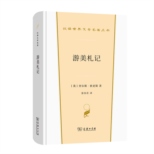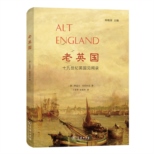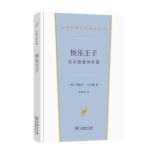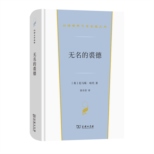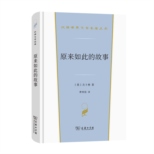At the suggestion of the participants at a conference held in Hangzhou in May 1980 under the sponsorship of the Ministry of Education,this College History of English Literature has been designed and finally brought to completion. It is based on A History of English Literature (in four volumes,the Commercial Press),a distinguished work of high academic standing by the late Professor Chen Jia (陈嘉) of Nanjing University. In view of the different levels of proficiency in the English language among students of English in Chinese colleges and universities today,the present book has been deliberately made shorter and more accessible. Thus,some of the wealth of references and extensive discussions on literary topics in the original work have been either simplified or dispensed with. However,great efforts have been made,in this shorter version, to carry out the guiding principles of Prof. Chen's scholarly volumes and to follow the original format in its divisions into nine chapters,which are further divided under different headings and sub-headings to enable the reader to follow or consult it easily.
Care has also been taken to use,for reference,the fruits of the latest research done both in this country,notably the foreign literature section of The Chinese Encyclopaedia,and in Britain and the United States.
In order to accommodate actual students' needs in the present work,the draft,in monograph-sheet form,has been put to classroom use several times at Suzhou University and has received necessary alterations and modifications in the light of these trials.
My warmest gratitude goes to Prof. Chen Jia,my beloved teacher,not only for his generosity in providing me with his work,but also for his inspiring guidance and meticulous care that constantly enhanced the progress of the book.
I am also very grateful to Prof. Mao Minzhu (毛敏诸) of Nanjing University who kindly contributed her share of Chapters 1,2,& 6.
My debt to Prof. Li Yixie (李宜燮) of Nankai University and Prof. Yang Qishen (杨岂深) of Fudan University is far larger than that which a writer conventionally owes to his editors; they read the whole manuscript on behalf of the Textbook Evaluation Committee of the State Commission for Education and made not a few valuable suggestions and improvements. If there are still mistakes peeping through the pages or even boldly intruding, they are all my responsibility.
Thanks are also due to Ms. Zang Tianying (臧天婴)of Jiangsu Education Institute for her magnificent work in typing Chapters 8 & 9 of the manuscript.
Finally,I wish to thank the staff of the Commercial Press,especially Mr. Zhu Yuan (朱原),senior editor,and Ms. Zheng Weilin (郑维霖),executive editor,for their efforts to bring this book to publication.
Suzhou University Song Wenlin
1991 (宋 文 林)
<STRONG>Chapter I English Literature of the
Anglo-Saxon Period (Mao Minzhu)
</STRONG> 1. The Historical Background
2. Beowulf
3. Religious Poetry: Caedmon and Cynewulf
4. Anglo-Saxon Prose: Bede and Alfred
<STRONG>Chapter II English Literature of the
Late Middle Ages (Mao Minzhu)</STRONG>
Section I English Literature from the Mid-llth to the Mid-14th
Century
1. The Background: political and Social
2. Folk Literature and Religious Literature from the Mid-llth to
the Mid-14th Century
3. Early Alliterative and Metrical Romances in the 12th,13th,
and Early 14th Centuries
Section II English Literature of the Second Half of the 14th Century
1. The Background: Political and Social
2. John Wycliffe, John Gower, and William Langland
3. Geoffrey Chaucer
Section III English Literature of the 15th Century
1. The Background: Political and Social
2. English and Scottish Popular Ballads:“Robin Hood Ballads”;
“Border Ballads”and Others
3. Early English Drama: Folk Drama; the Mystery Plays; the
Miracle Plays; the Morality Plays
4. English Prose of the 15th Century: Sir Thomas Malory and His
Le Morte d'Arthur
<STRONG>Chapter III English Literature
of the Renaissance (Song Wenlin)
</STRONG>Section I The Historical Background: Economic,Political,and
Cultural
1. The Renaissance in Europe
2. Stages and Trends of English Literature of the Renaissance
Section II English Literature of the Early 16th Century
1. “The Oxford Reformers” and Thomas More
2. Court Poetry: Skelton; Wyatt and Surrey
3. Morality Plays and Interludes of the 16th Century: David
Lyndsay and John Heywood
Section III English Literature of the Second Half of the 16th Century
1. Court Poetry: Sidney and Spenser
2. Prose Fiction: Lyly, Nashe, and Deloney
3. Pre-Shakespearean Drama: English Drama under Classical
Influence; “the University Wits” -Lyly,Peele,Lodge,Nashe,
Greene,Kyd,and Marlowe; the Elizabethan Theatre
Section IV William Shakespeare
1. Shakespeare's Life and Literary Career
2. Shakespeare's Poems and Sonnets
3. The First Period of Shakespeare's Dramatic Career (1588-90—
1594-5): Early Experimental Comedies (Love's Labour's Lost,
The Comedy of Errors, and The Two Gentlemen of Verona);
Early History Plays (Henry VI,Parts I, II, & III and Richard
III)
4. The Second Period of Shakespeare's Dramatic Career (1594-5—
1601): Later History Plays (King John,Richard II, the two
parts of Henry IV,and Henry V); a Fantasy (A Midsummer
Night's Dream) and Two Farces (The Taming of the Shrew and
The Merry Wives of Windsor); Two Early Tragedies (Romeo and
Juliet and Julius Caesar); Four Great Comedies (The Merchant of
Venice, Much Ado About Nothing,As You Like It, and
Twelfth Night )
5. The Third Period of Shakespeare's Dramatic Career (1601—
1609): Four Great Tragedies (Hamlet, Othello,King Lear,
and Macbeth) and Other Tragedies (Antony and Cleopatra,
Coriolanus, and Timon of Athens); Earlier Tragi-Comedies
(Troilus and Cressida, All's Well That Ends Well, and
Measure for Measure)
6. The Last Period of Shakespeare's Dramatic Career (1609—
1612-3): Pericles,Cymbeline,The Winter's Tale,The Tempest,
and Henry VIII
7. General Comments on Shakespeare
Section V English Literature of the First Quarter of the 17th Century
1. The Drama of Shakespeare's Contemporaries: Ben Jonson,
Chapman, Dekker, Thomas Heywood,Beaumont and Fletcher
2. The Decline of Drama in Early 17th-Century England up to the
Closing of the Theatres in London in 1642: Marston, Tourneur,
Webster,Ford, Middleton, Massinger,and Shirley
3. Francis Bacon
4. The King James Bible and Other Prose in the Early 17th Century
5. English Non-Dramatic Poetry in the First Thirty Years of the
17th Century: the Spenserians,John Donne,and Ben Jonson
<STRONG> Chapter IV English Literature during
the English Bourgeois Revolution
and the Restoration (Song Wenlin)
</STRONG>Section I The Historical Background: Political and Ideological
1. The Political Background from the Eve of the English Bourgeois
Revolution to the End of the Restoration (1625—1688)
2. The Ideological Background of English Literature in the 17th Century
Section II Minor Currents of English Literature from 1625 to 1660
1. Minor English Poets and Prose Writers of the Period
2. The Pamphlet Literature of the Levellers and the Diggers: John
Lilburne and Gerrard Winstanley
Section III John Milton
1. Milton's Life and Literary Career
2. Milton's Early Works
3. The Middle Period of Milton's Literary Career: His Prose and
His Sonnets
4. The Last Period of Milton's Literary Career: Paradise Lost,
Paradise Regained,and Samson Agonistes
5. Summary
Section IV English Literature of the Restoration
1. John Bunyan
2. John Dryden
3. The English Drama of the Restoration
4. Minor English Poetry and Prose of the Restoration
<STRONG> Chapter V Eighteenth Century English
Literature (Song Wenlin)
</STRONG>Section I The Historical Background: Political and Ideological
1. Political Background from the Revolution of 1688 to the End of the 18th Century
2.The Enlightenment in England and Its Effect upon English Literature of the 18th Century
Section II English Literature of the Early 18th Century
1. Neo-Classicism in English Literature in the Early 18th
Century: Alexander Pope
2. Periodical Literature in Early 18th-Century England: Addison
and Steele
3. Daniel Defoe
4. Jonathan Swift
Section III English Prose Fiction in the Middle and Last Decades of
the 18th Century
1. Richardson
2. Fielding
3. Smollett
4. Sentimentalism: Sterne and Goldsmith
5. The Gothic Romances and Other Works of Fiction near the End
of the 18th Century
Section IV English Drama in the 18th Century
1. English Drama in the Early and Middle Decades of the 18th
Century
2. Richard Brinsley Sheridan
Section V Neo-Classicism and Pre-Romanticism in English Poetry and
Prose in the Middle and Last Decades of the 18th Century
1. Samuel Johnson; James Boswell; Gibbon; Burke
2. English Poetry in the Middle and Later Decades of the 18th
Century: Traditions of Pre-Romanticism and Sentimentalism—
Thomson,Collins,Young,Gray; MacPherson, Percy,
Chatterton; Cowper; Crabbe
3. Robert Burns
4. William Blake
<STRONG> Chapter VI English Literature of the Early
19th Century (Mao Minzhu)
</STRONG>Section I The Historical Background and Literary Trends in Early
19th-Century England
1. The Historical Background: Economic, Political, and
Ideological
2. The Literary Trends: the Romantic Movement in English
Literature; the Poetry of Wordsworth,Coleridge,Byron,
Shelley, and Keats; the Prose Fiction of Walter Scott and
Jane Austen; and the Essayists of the Period
Section II Romantic Poetry in Early 19th-Century England
1. William Wordsworth
2. Samuel Taylor Coleridge
3. George Gordon Byron
4. Percy Bysshe Shelley
5. John Keats
Section III English Prose in the Early 19th Century
1. Prose Fiction: Walter Scott and Jane Austen
2. William Cobbett
3. Essayists in the Early 19th Century: William Hazlitt,Charles
Lamb,and Thomas De Quincey
